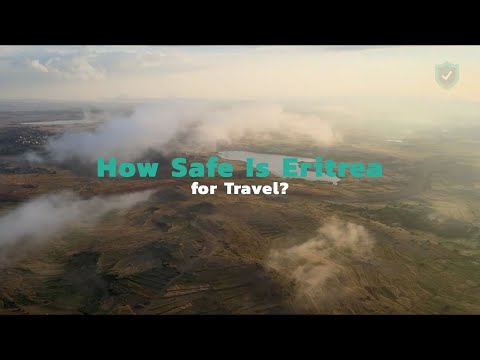
When it comes to planning a journey to lesser-known destinations, safety is always a primary concern for travelers. Eritrea, a small nation on the Horn of Africa, bordered by Sudan, Ethiopia, and Djibouti, and with a long coastline along the Red Sea, often piques the curiosity of adventurous travelers. However, its complex political situation and historical conflicts can raise concerns about safety.
#### Understanding Eritrea’s Background
Eritrea gained independence from Ethiopia in 1993 after a prolonged conflict. Since then, it has been under the control of President Isaias Afwerki and his party, with no national elections held since its independence. The country has had strained relations with its neighbors, particularly Ethiopia, although recent peace agreements have seen improvements in these relationships.
#### Current Safety Situation
As of now, many governments advise caution when traveling to Eritrea or recommend avoiding non-essential travel to certain areas, particularly border regions. The reasons include potential risks due to remaining tensions with neighboring countries and occasional military conflicts.
In terms of crime rates in cities such as Asmara (the capital), reports suggest that it is relatively low compared to other African cities. Petty crimes like pickpocketing and small-scale thefts can occur, which is typical in most urban settings globally.
#### Political Climate
Travelers should be aware that the political climate in Eritrea can be somewhat unpredictable. The government maintains strict control over many aspects of life in the country which includes restrictions on media and communication. For tourists this means limited access to international news outlets while within the country and potentially slow internet service.
#### Travel Restrictions & Permissions
Visitors often need permits to travel outside specific areas like Asmara. You may need prior authorization for photography in many places and interaction with locals can sometimes be monitored by authorities. Such regulations necessitate careful planning and adherence to local laws during your stay.
#### Infrastructure
The infrastructure in Eritrea might not match what travelers are accustomed to in other parts of the world. While main roads are generally in good condition, some rural areas can only be accessed via poorly maintained roads which makes traveling independently challenging without local assistance.
#### Health Considerations
Eritrea does not pose major health risks compared to other tropical countries; however routine vaccines such as tetanus and typhoid are recommended before visiting. Malaria prophylaxis might also be required depending on your travel itinerary within the country.
#### Cultural Sensitivity
Understanding local customs and showing respect towards local traditions is very important while visiting any foreign country; this holds especially true for Eritrea. Dress conservatively and familiarize yourself with basic norms regarding social interactions and public behavior.
#### Conclusion: Is It Safe To Travel To Eritrea?
Traveling to Eritrea is safe provided you take necessary precautions common when visiting unfamiliar environments: remain informed about current political situations; avoid border areas unless absolutely necessary; respect local laws particularly concerning movement restrictions; prepare health-wise adequately before departure.
For those interested in experiencing unique cultures untouched by mass tourism and exploring unspoiled landscapes along one of the world’s busiest shipping lanes – Red Sea Coast – Eritrea offers an intriguing destination but demands thorough preparation for safe travel experience.
